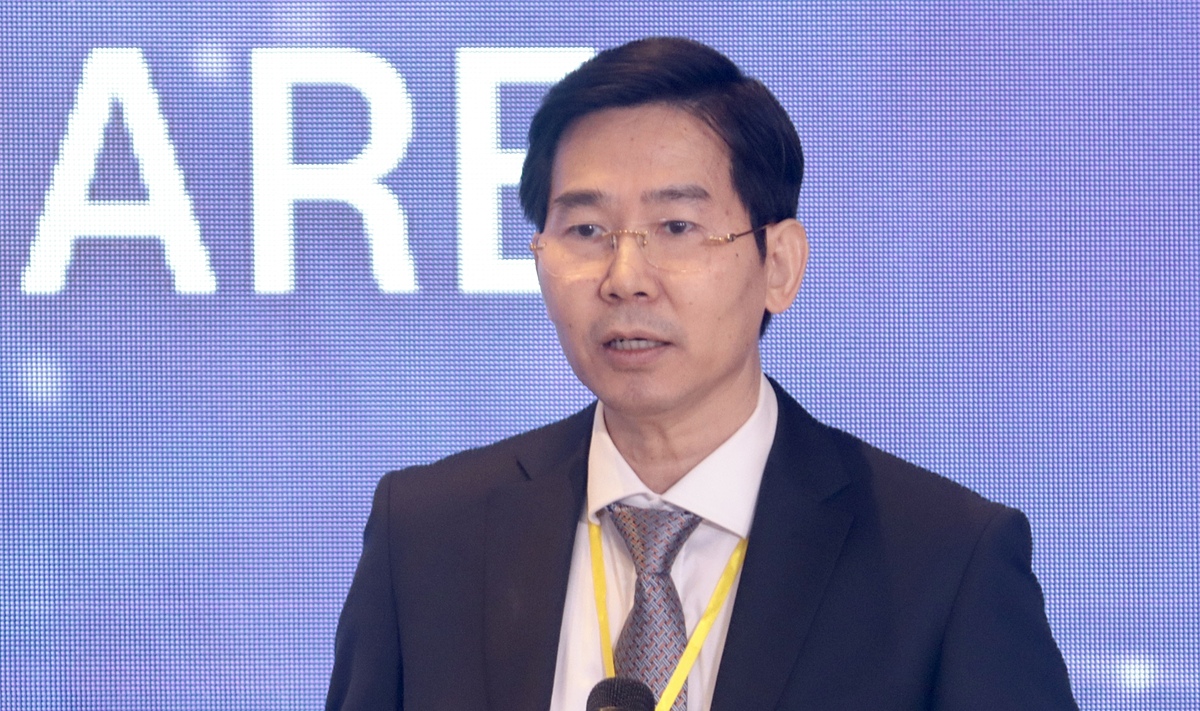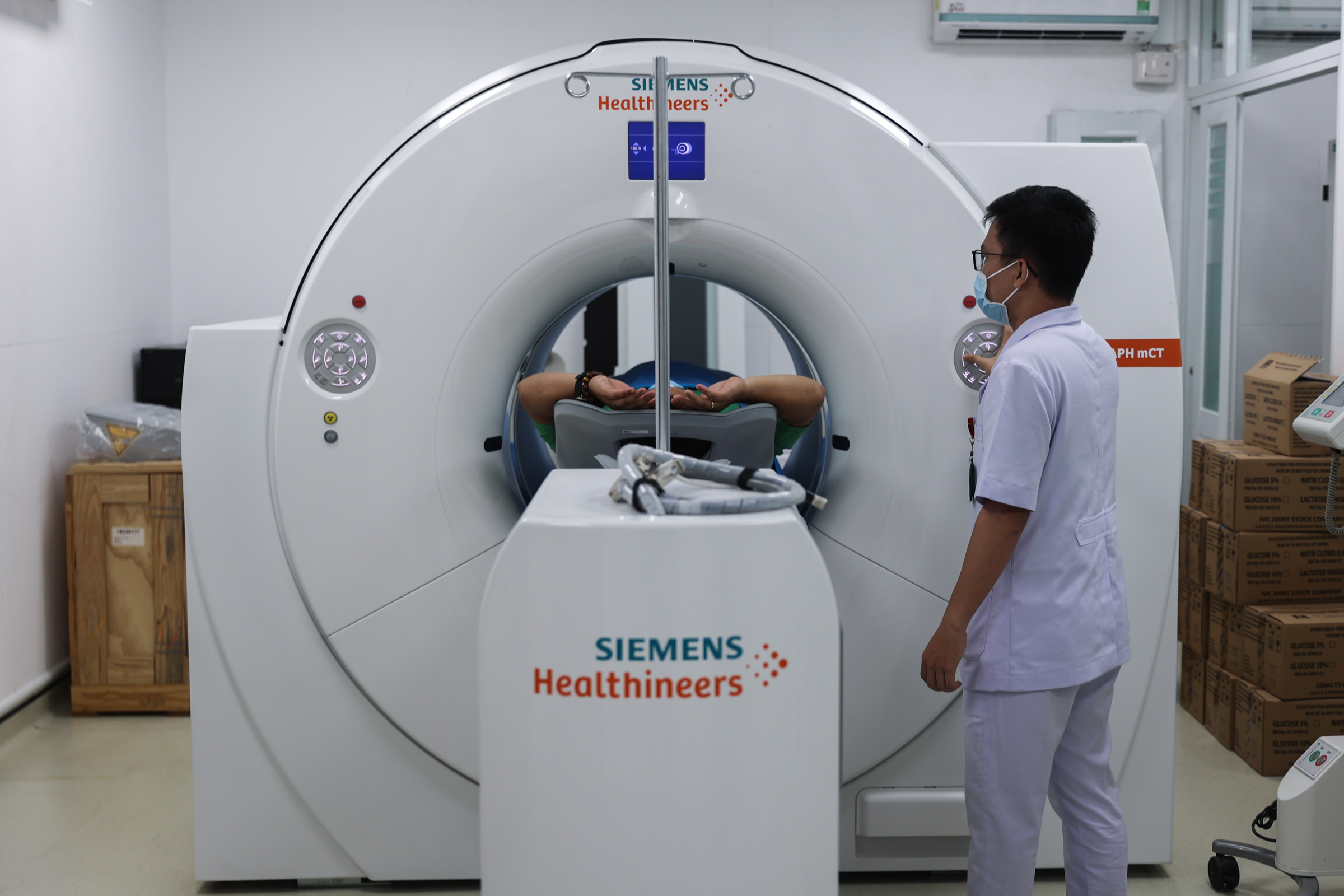Associate Professor, Doctor Lam Viet Trung, Deputy Director of Cho Ray Hospital, shared this information at the International Conference on Traditional and Modern Cancer Treatment on 12/7. The conference was jointly organized by Cho Ray Hospital, Taipei Veterans General Hospital, Kaohsiung Medical University Hospital, and the Show Chwan Health System.
Experts from both countries discussed non-invasive cancer treatment, surgical cancer treatment, smart healthcare, and new trends. Cho Ray has sent many doctors abroad for training, particularly to Taiwan, where medical advancements are approaching global standards, to learn new treatment techniques and effective cancer patient management.
According to Associate Professor Trung, with cancer cases on the rise, the hospital is not only actively treating, preventing, and detecting cancers early but also applying artificial intelligence and digital transformation to improve the quality of medical examination and treatment. Doctors are increasing scientific research and international cooperation to keep up with medical progress regionally and globally, creating breakthroughs in science, technology, and innovation.
 |
Associate Professor, Doctor Lam Viet Trung, Deputy Director of Cho Ray Hospital, at the conference on 12/7. Photo: Hanh Nguyen |
Associate Professor, Doctor Lam Viet Trung, Deputy Director of Cho Ray Hospital, at the conference on 12/7. Photo: Hanh Nguyen
Cho Ray Hospital is currently using robotic surgery to treat various cancers, especially those related to the digestive, urinary, and thoracic systems. The hospital continues to develop specialized techniques and apply new treatment regimens to achieve the best outcomes for patients. Cho Ray is one of three hospitals, along with K Hospital and Hue Central Hospital, slated by the Ministry of Health to develop a proton therapy center. This is currently the most advanced external beam radiation therapy technique globally, addressing the shortcomings of linear accelerator radiation therapy (common in Vietnam).
Mr. Guo-Yao Han, Head of the Taipei Economic and Cultural Office in Ho Chi Minh City, highlighted the role of combining modern and traditional medicine in cancer treatment. The world is witnessing remarkable advancements in modern medicine, such as robotic surgery, immunotherapy, and advanced chemo-radiation therapy, with significant support from AI. Meanwhile, traditional medicine still plays an irreplaceable role, complementing chemotherapy and radiation therapy, reducing side effects, improving treatment outcomes, and providing more comprehensive patient care.
 |
PET/CT scan in cancer treatment at Cho Ray Hospital. Photo: Quynh Tran |
PET/CT scan in cancer treatment at Cho Ray Hospital. Photo: Quynh Tran
Cancer remains a leading health burden, with continuously increasing new cases and deaths, requiring a focus not only on treatment but also on prevention, early detection, and palliative care. The International Agency for Research on Cancer (Globocan) estimates that Vietnam has over 180,000 new cancer cases and more than 120,000 cancer deaths annually.
The five most common cancers for both genders are breast, liver, lung, stomach, and colorectal. In 2022, Vietnam's cancer incidence rate ranked 90th out of 185 countries, but the mortality rate ranked 50th and is steadily climbing in the global rankings.
Doctors recommend that people strengthen cancer prevention awareness through a healthy lifestyle: a balanced diet, limiting processed foods, quitting smoking, reducing alcohol consumption, and regular exercise. They also advise getting vaccinated against preventable diseases, having annual health checkups, seeking medical attention for any unusual signs, and actively participating in early cancer screening based on age and risk group. Screening even before symptoms appear allows for very early detection, leading to less intensive treatment and a higher chance of a complete cure.
Le Phuong












